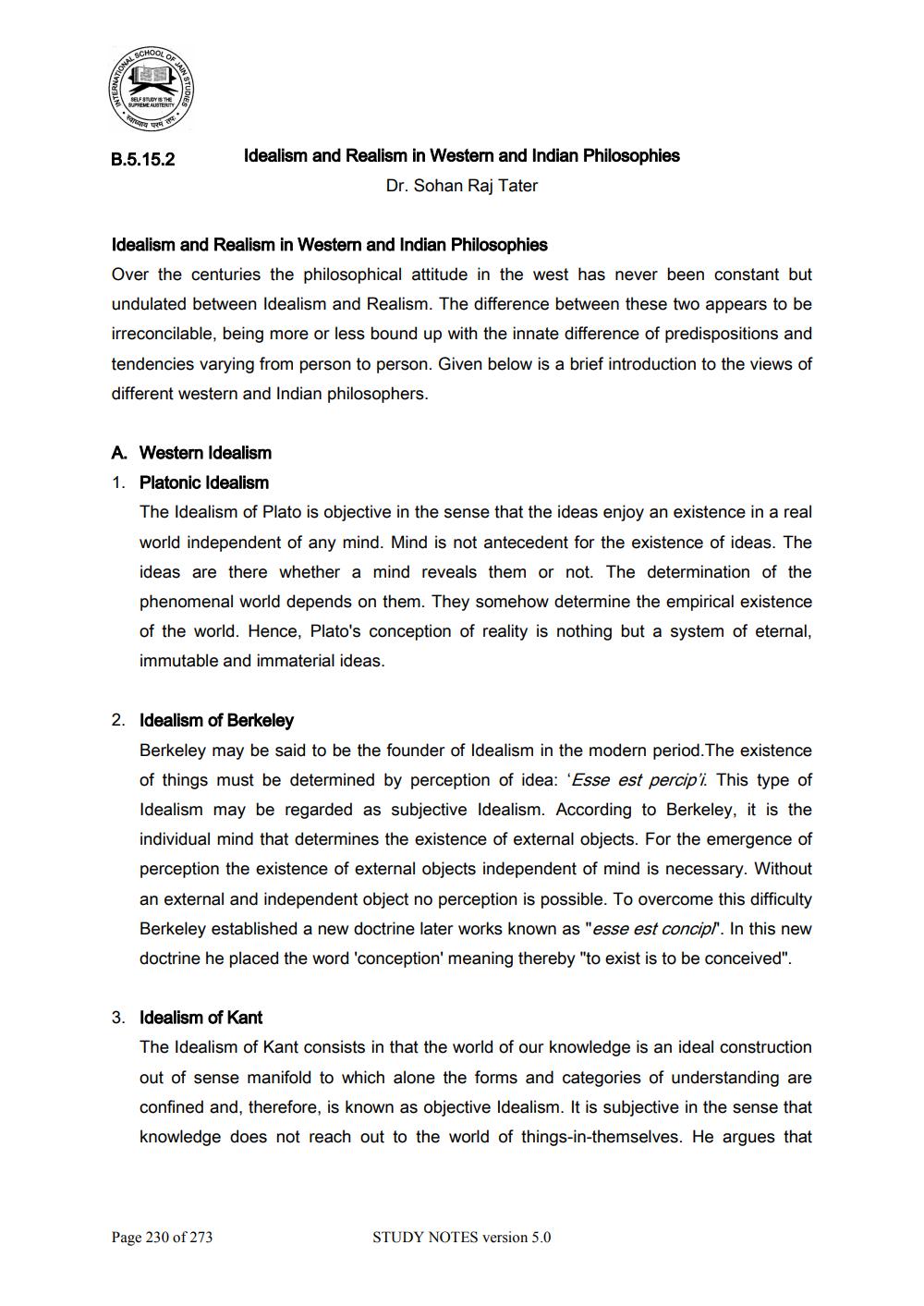________________
B.5.15.2
Idealism and Realism in Western and Indian Philosophies
Dr. Sohan Raj Tater
Idealism and Realism in Western and Indian Philosophies Over the centuries the philosophical attitude in the west has never been constant but undulated between Idealism and Realism. The difference between these two appears to be irreconcilable, being more or less bound up with the innate difference of predispositions and tendencies varying from person to person. Given below is a brief introduction to the views of different western and Indian philosophers.
A. Western Idealism 1. Platonic Idealism
The Idealism of Plato is objective in the sense that the ideas enjoy an existence in a real world independent of any mind. Mind is not antecedent for the existence of ideas. The ideas are there whether a mind reveals them or not. The determination of the phenomenal world depends on them. They somehow determine the empirical existence of the world. Hence, Plato's conception of reality is nothing but a system of eternal, immutable and immaterial ideas.
2. Idealism of Berkeley
Berkeley may be said to be the founder of Idealism in the modern period. The existence of things must be determined by perception of idea: 'Esse est percipi. This type of Idealism may be regarded as subjective Idealism. According to Berkeley, it is the individual mind that determines the existence of external objects. For the emergence of perception the existence of external objects independent of mind is necessary. Without an external and independent object no perception is possible. To overcome this difficulty Berkeley established a new doctrine later works known as "esse est concipl'. In this new doctrine he placed the word 'conception' meaning thereby to exist is to be conceived".
3. Idealism of Kant
The Idealism of Kant consists in that the world of our knowledge is an ideal construction out of sense manifold to which alone the forms and categories of understanding are confined and, therefore, is known as objective Idealism. It is subjective in the sense that knowledge does not reach out to the world of things-in-themselves. He argues that
Page 230 of 273
STUDY NOTES version 5.0




